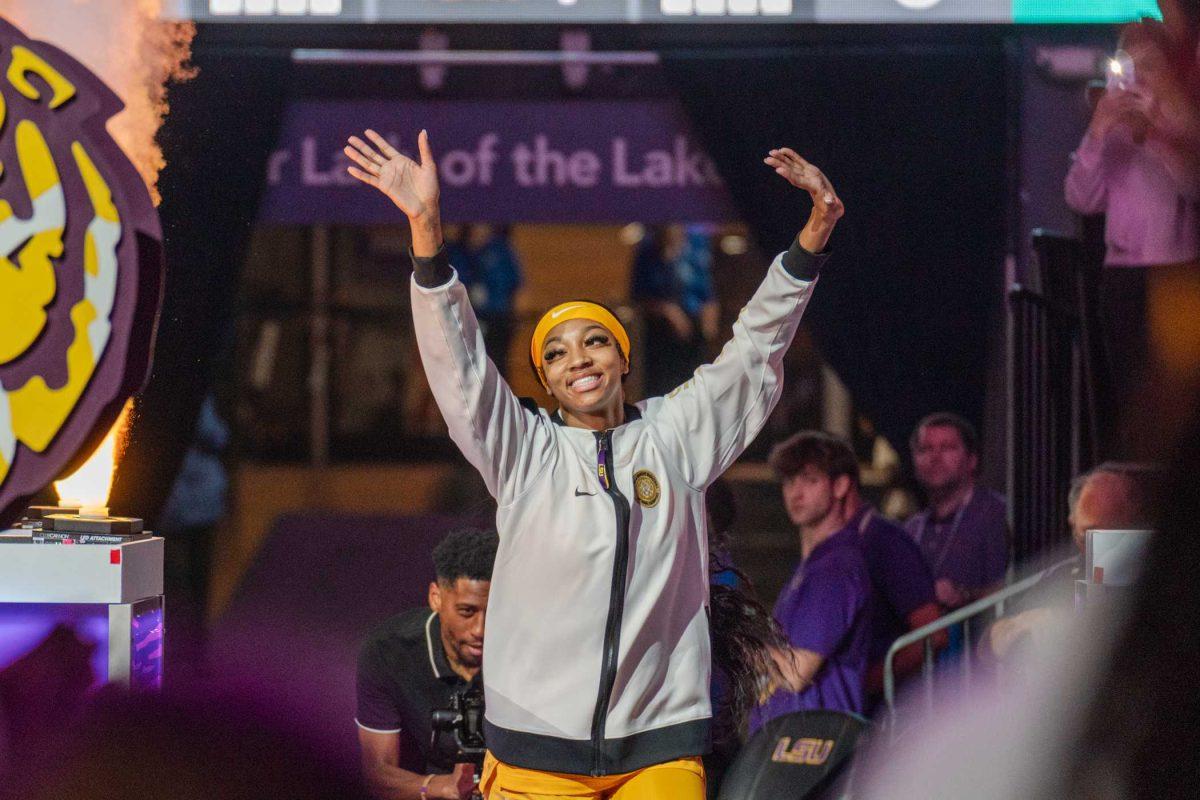LSU woman’s basketball star Angel Reese has been under fire since the beginning of her career at this school. Her confidence and competitiveness have garnered negative responses from many basketball fans, despite the fact that basketball is a competitive sport in nature.
Though Reese is her own person, she’s been compared to Caitlin Clark, a basketball star from the University of Iowa. There’s nothing wrong with comparison, but it’s interesting to see the way the general public treats them both, especially now that both have been drafted into the WNBA.
One player has been getting dragged through the media for her attitude, and the other has been praised. I think you see where I’m going with this. Ultimately the difference in the kind of criticism thrown at each player boils down to racism.
Society has a weird obsession with policing Black people. Everything we do gets scrutinized to the point where our humanity is stripped from us. We’re not given grace, and we sure as hell don’t receive empathy.
Leah Goodridge, a writer for Teen Vogue, said it best regarding the public’s perception of Angel Reese: “Spectators want us to be gracious losers and humble winners; we are humans first and always.” It’s true.
Even when we’re “accepted,” it’s only under certain circumstances. We have to assimilate and succumb to the status quo. Therefore, things like speaking ebonics or wearing Black cultural hairstyles like box braids and locs aren’t ok, according to societal standards.
If you’re Black and a woman, you get a double dose of poison, one being racism and the other being misogyny. It’s difficult to avoid both since we live in a violently anti-Black and patriarchal world.
The biggest example of the double standards set in place for Black women as it relates to Reese would be when she imitated Clark’s “you can’t see me” gesture in a basketball game last year. Clark made the gesture to an opponent in one game, and Reese returned the favor when they went head-to-head in another.
I remember seeing people call Reese petty and classless, but Clark’s actions were permissible. The problem isn’t the gesture; it’s an example of competitiveness and confidence, which is fine in sports. The issue lies in the public’s difference in assessing the gesture.
Don’t get me wrong, Clark isn’t free of criticism either, but you have to admit that Reese faces an insane amount of hatred and bullying due to her identity. It’ll never sit right with me.
These racial dynamics go beyond basketball. The public perception of Reese and Clark just brings to light all of the darkness that’s so often swept under the rug in this country and world. Black people aren’t your objects of entertainment and criticism; we’re people.
So to Reese and all of the other Black athletes or really members of the Black community in general: we’ll be hated regardless of who we are or how we behave. But who cares?
Remain authentic and keep it pushing.
Amyri Jones is a 22-year-old digital advertising and religious studies senior from Baton Rouge.





